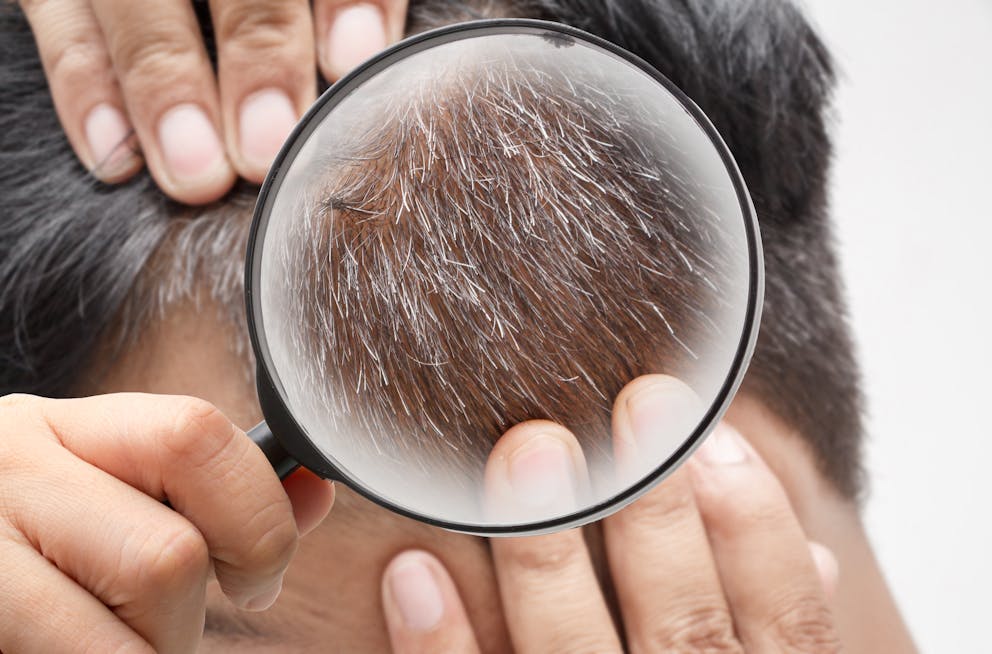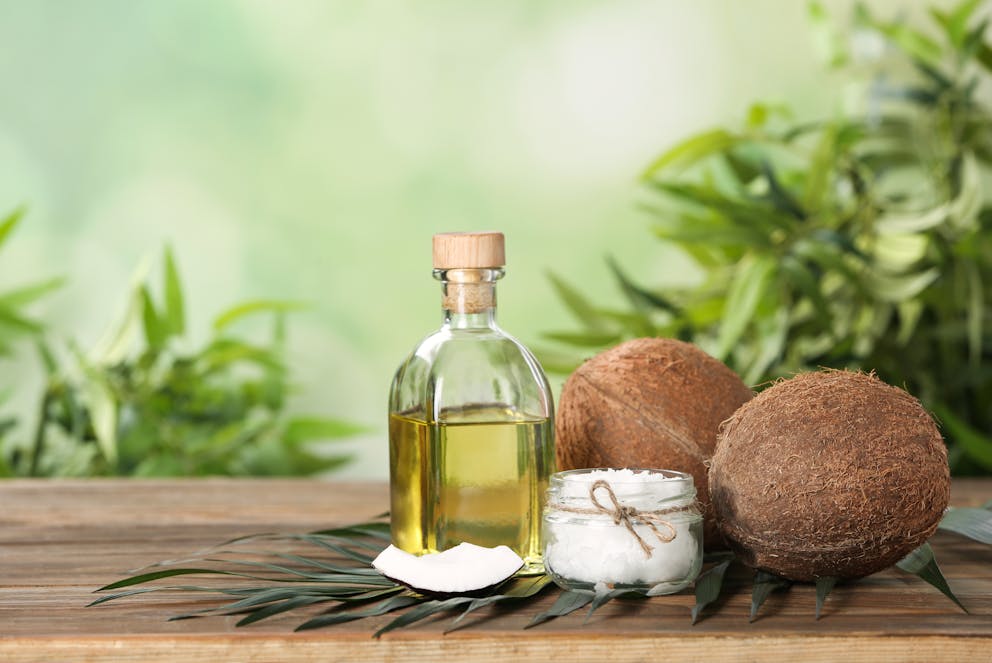Losing Your Hair Color Prematurely Do These 2 Things Now
You know that dreaded moment when you spot your first gray hair? It's like a rite of passage, a reminder that time marches on. But what if you could slow down that march, at least when it comes to your hair?
Let’s explore how to prevent premature graying and keep those silver strands at bay a little longer.
Understanding the Science Behind Premature Graying
Before we dive into the solutions, it helps to understand what causes those pesky grays in the first place. The answer lies in those tiny factories within our hair follicles called melanocytes.
These specialized cells produce melanin, the pigment responsible for giving our hair its natural color. Think of them as miniature artists with a very specific job.
The Role of Melanin
Melanin isn't just about aesthetics. It plays a vital role in protecting our skin and hair from sun damage.
When it comes to hair color change, there are two main types of melanin at play: eumelanin (responsible for brown and black shades) and pheomelanin (which produces red and blonde hues).
As we age, these melanocytes start to slow down their melanin production, leading to gray hair. The hair follicles lose pigment, so your once-vibrant hair color fades.

Factors Contributing to Premature Graying
Genetics: The Luck of the Draw
Unfortunately, some of us are genetically predisposed to gray earlier than others. If your parents or grandparents went gray young, you might be more likely to follow in their footsteps.
While you can't change your genes, understanding their role can help manage expectations and take proactive steps.
Nutritional Deficiencies: Fueling Your Follicles
Our hair follicles need a steady supply of specific nutrients to produce melanin effectively. Nutritional deficiencies in certain vitamins, minerals, and antioxidants can contribute to premature graying.
Vitamin B12: This essential vitamin plays a crucial role in cell growth and repair. A vitamin B12 deficiency can lead to premature graying.
Copper: This mineral helps with melanin production and maintains hair color.
Vitamin E: This antioxidant helps protect cells from damage.
Stress and Hormonal Imbalances: The Mind-Body Connection
Chronic stress and hormonal imbalances can disrupt melanin production, leading to those telltale silver strands. When we’re stressed, our bodies produce cortisol, a hormone that can interfere with melanin production.
Thyroid-related disorders can also affect hair pigmentation, causing changes in hair color. Addressing these imbalances through lifestyle modifications and, if needed, medical intervention can help mitigate stress-induced graying.
Lifestyle Factors: Habits That Impact Hair Health
Believe it or not, certain lifestyle factors can accelerate the graying process, causing your hair to turn white sooner than expected:
Smoking: This habit restricts blood flow, including blood flow to hair follicles, depriving them of essential nutrients.
Excessive Alcohol Consumption: Overindulging in alcohol can deplete nutrients vital for healthy hair.
Poor Diet: A diet lacking in fruits, vegetables, and other nutrient-rich foods can contribute to premature aging, including gray hairs.
Proven Strategies to Help Prevent Premature Graying
Now that we've explored the culprits behind premature graying, let’s discuss how to combat it and keep your hair stay its natural color for as long as possible.
1. Embrace a Nutrient-Rich Diet to Support Hair Pigmentation
You can't always outrun your genes, but you can give your body the building blocks it needs for healthy hair:
Copper-Rich Foods: Indulge in copper-rich foods like oysters, shiitake mushrooms, nuts, and seeds to help your body produce melanin more efficiently.
Vitamin B12 Sources: Boost your B12 intake by consuming foods like lean meats, fish, eggs, and dairy products. Consider a supplement if dietary sources are limited or if you follow a plant-based diet.
Antioxidant Powerhouses: Load up on vibrantly colored fruits and vegetables, like berries, leafy greens, and bell peppers, which are chock full of antioxidants like vitamin C and E to help fight free radicals.
Protein Intake: Hair is primarily made up of protein, so ensure you're getting enough protein in your diet through sources like lean meats, poultry, fish, beans, lentils, and tofu.
2. Manage Stress and Prioritize Self-Care
Stress management is essential for overall well-being, including hair health. Practice stress-reducing techniques such as:
Regular Exercise: Engage in activities you enjoy, whether it's running, dancing, or simply taking a walk in nature. Aim for at least 30 minutes of moderate-intensity exercise most days of the week.
Quality Sleep: Prioritize getting 7 to 8 hours of quality sleep each night. A good night's sleep allows your body to repair and regenerate, including hair follicles.
3. Consider Targeted Supplements to Fill Nutritional Gaps
Talk to your doctor about whether supplementing might be right for you. They can help determine any potential deficiencies and recommend appropriate dosages:
Biotin: Often touted as the "hair vitamin," biotin is a B vitamin essential for healthy hair growth.
Folic Acid: Another crucial B vitamin, folic acid plays a role in cell growth and division, including hair follicle cells.
Vitamin D: This vitamin is essential for many bodily functions, including hair growth. Deficiencies in vitamin D have been linked to hair loss and potentially premature graying.
Iron: Iron deficiency can lead to hair loss and may contribute to premature graying. Ensure you're getting enough iron in your diet or through supplementation if needed.
4. Avoid Harsh Hair Treatments and Protect from Sun Damage
Treat your hair with the care it deserves to prevent premature hair graying:
Limit Heat Styling: Excessive heat from blow dryers, curling irons, and straighteners can damage hair and contribute to breakage. Embrace your natural texture whenever possible, and use heat-protectant products when heat styling is unavoidable.
Gentle Coloring Techniques: If you choose to dye your hair, opt for more natural, ammonia-free dyes or explore gentler highlighting techniques that minimize damage to your hair shafts.
Protect from UV Rays: Just like skin, your hair is susceptible to sun damage, which can accelerate graying. Wear a hat or use hair products with UV protection when spending time outdoors, especially during peak sun hours.
Choose Hair Products Wisely: Opt for gentle, sulfate-free shampoos and conditioners that won't strip your hair of its natural oils. Harsh chemicals in some hair products can damage hair and potentially contribute to premature graying.
Be Mindful of Brushing: Use a wide-toothed comb, especially on wet hair, to prevent breakage. Avoid over-brushing, as this can also lead to hair damage.
5. Explore Natural Remedies: The Power of Plants
Nature offers some potential allies in the fight against premature graying. Keep in mind that research on their effectiveness is still emerging. Consult your doctor or a dermatologist before trying new remedies, especially if you have any underlying health conditions.
Curry Leaves: These fragrant leaves are thought to stimulate melanin production and may help restore natural hair color. You can add curry leaves to your diet or massage your scalp with curry leaf oil.
Black Tea Rinse: Rinsing your hair with cooled black tea might help darken gray hair due to its tannins content.
Henna: This natural dye derived from the henna plant has been used for centuries to color hair and can help camouflage grays. Henna is a safer alternative to chemical dyes, but it's essential to choose pure henna products and follow instructions carefully.
Amla (Indian Gooseberry): Amla is rich in antioxidants and vitamin C, which may help prevent premature graying. You can consume amla juice or apply amla oil to your hair.
6. Address Underlying Medical Conditions: When to See a Doctor
In some cases, premature graying can be a sign of an underlying health condition like thyroid disorders, autoimmune diseases, or vitamin deficiencies.
If you notice sudden or patchy graying, hair loss, or other unusual symptoms, consult a doctor for a proper diagnosis and treatment plan.

Gray Delay
Offer a holistic approach to maintaining youthful hair color while cautioning against potential hazards of certain popular practices.
The guide provides essential tips, such as incorporating antioxidant-rich foods, ensuring adequate vitamin B12 and biotin intake, reducing stress through mindfulness and avoiding harsh chemical treatments.
It also emphasizes the importance of regular scalp massages to stimulate blood flow and using natural hair care products free from sulfates and parabens.
Additionally, the guide highlights the coconut oil pulling dangers, such as the risk of aspiration leading to lipid pneumonia, jaw discomfort, and potential digestive issues, urging readers to approach this practice with caution.
By following these natural tips and being aware of the risks, individuals can effectively combat premature graying and maintain healthier hair.
Conclusion
While there's no magic elixir to permanently stop the hands of time, a multi-pronged approach can make a world of difference in maintaining youthful hair.
You can keep your hair looking vibrant by adopting a holistic approach that addresses various factors contributing to premature graying.
By understanding the science behind hair pigmentation, incorporating a nutrient-rich diet, managing stress levels, adopting healthy hair care practices, and addressing any underlying medical conditions.
You can take proactive steps to help preserve your natural hair color and embrace the aging process gracefully.
Tags

Popular
08/21/2024
55.7K views
02/23/2025
46.8K views
11/18/2024
281.1K views
03/18/2024
11/21/2022




